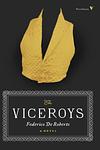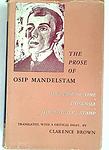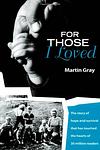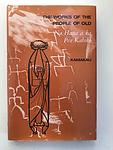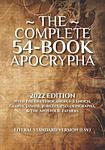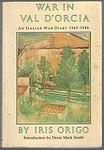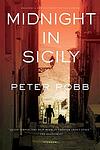The Greatest Italian, Multiple "History" Books of All Time
Click to learn how this list is calculated.
This list represents a comprehensive and trusted collection of the greatest books. Developed through a specialized algorithm, it brings together 300 'best of' book lists to form a definitive guide to the world's most acclaimed books. For those interested in how these books are chosen, additional details can be found on the rankings page.
Genres
The category of "History" in books refers to the study and interpretation of past events, societies, and cultures. It encompasses a wide range of topics, including political, social, economic, and cultural developments, as well as the lives of individuals and groups who have shaped the course of history. History books can be written from various perspectives and may focus on specific time periods, regions, or themes. They aim to provide readers with a deeper understanding of the past and its impact on the present.
Countries
Date Range
Reading Statistics
Click the button below to see how many of these books you've read!
Download
If you're interested in downloading this list as a CSV file for use in a spreadsheet application, you can easily do so by clicking the button below. Please note that to ensure a manageable file size and faster download, the CSV will include details for only the first 500 books.
Download-
1. Dialogue Concerning the Two Chief World Systems by Galileo
This scientific work presents a series of discussions between three characters, each representing a different perspective on the cosmological theories of the time. Throughout the dialogue, the characters debate the merits of the Ptolemaic geocentric system, which asserts that the Earth is the center of the universe, and the Copernican heliocentric system, which proposes that the Sun is the center. The author uses these discussions to subtly argue in favor of the Copernican system, challenging the traditional religious and scientific beliefs of his time.
-
2. Lives of the Artists by Giorgio Vasari
"Lives of the Artists" is a comprehensive collection of biographies of the most significant Italian artists from the 13th to the 16th centuries. The book provides a detailed overview of the artists' lives, their works, and their contributions to the art world. It includes the biographies of renowned artists like Leonardo da Vinci, Michelangelo, and Raphael, among others. The author's personal acquaintance with some of these artists lends a unique perspective, making the book a valuable historical document.
-
3. Danube by Claudio Magris
This literary work is a rich tapestry that combines travelogue, history, and cultural analysis, following the journey of the river Danube from its sources in the heart of Europe to its delta at the Black Sea. As the narrative meanders through various countries, it delves into the complex history and diversity of the regions along the riverbanks, reflecting on the interplay of different cultures, languages, and peoples. The book is a contemplative exploration of the European spirit, examining the river as both a physical and metaphorical conduit through which ideas and influences have flowed, shaping the continent's past and present.
-
4. Kaputt by Curzio Malaparte
"Kaputt" is a semi-autobiographical novel that portrays the bleak and disturbing experiences of the author during World War II. The narrative is set in Eastern Europe and offers a vivid depiction of the war's atrocities, including the Holocaust, as seen through the eyes of a war correspondent. The book is known for its surreal and grotesque imagery, combined with the author's sharp and cynical observations of the war's impact on humanity.
-
5. The Drowned and the Saved by Primo Levi
This book is a deeply moving exploration of the Holocaust, written by a survivor. It delves into the horrifying experiences at Auschwitz, examining the psychological impact on the prisoners, the brutal behavior of the guards, and the complex moral dilemmas faced by both. The author also discusses the concept of memory and its unreliability, especially in the context of such traumatic events, and analyzes the ways in which the Holocaust has been represented and remembered in society. The book serves as a profound meditation on the human condition under extreme circumstances.
-
6. Prison Notebooks by Antonio Gramsci
The book in question is a collection of intellectual and critical writings composed by an influential Marxist thinker while incarcerated by a Fascist regime. These notebooks delve into a wide array of subjects, including political theory, sociology, critical theory, and cultural analysis. Central to the work is the concept of cultural hegemony, which explores how state power and societal norms are maintained not just through force but also through cultural institutions and practices that shape public consciousness. The author's reflections on power, class, and ideology have had a profound impact on contemporary political and social thought, offering a nuanced understanding of the superstructures that govern societal dynamics and the potential for transformative change.
-
7. The Viceroys by Federico De Roberto
"The Viceroys" is a historical novel set in 19th century Sicily, during the Italian unification. The story revolves around the aristocratic Uzeda family, who are trying to retain their power and influence in the changing political landscape. The narrative explores themes of power, corruption, and the decline of the aristocracy through the lens of this manipulative and scheming family. The book is a critique of the social and political system of the time.
-
8. Six Studies In Communism by Arthur Koestler, Richard Crossman
This book is a compilation of six essays that delve into the ideological and practical facets of communism. Each study examines different aspects of communist theory and practice, from its origins and evolution to its implementation in various countries. The authors critically analyze the successes and failures of communist systems, exploring the impact on societies that have adopted these principles. The essays also consider the psychological and sociological effects of living under communist regimes, providing a multifaceted perspective on one of the most influential political ideologies of the 20th century.
-
9. The Noise Of Time by Osip Mandelshtam
The book in question is a profound reflection on the life and work of a Russian poet navigating the treacherous waters of Soviet politics under Stalin's regime. It delves into the themes of art, power, and the struggle for creative freedom in an oppressive state. Through a series of lyrical meditations, the poet grapples with the compromises and silences imposed by totalitarianism, while seeking to preserve the integrity of his voice and vision. The narrative captures the tension between the individual's inner world and the crushing weight of external forces, offering a poignant exploration of the resilience of the human spirit in the face of relentless noise and coercion.
-
10. The World Of Economics by John Eatwell, Murray Milgate, Peter Newman
"The World of Economics" is a comprehensive reference book that serves as an essential guide to the field of economics, offering a wide-ranging compilation of entries penned by an international group of economists and scholars. The work covers key concepts, theories, and figures that have shaped economic thought, providing readers with a deep understanding of both historical and contemporary economic issues. Its encyclopedic format presents a wealth of information on various topics, including economic policy, market structures, and foundational principles, making it a valuable resource for students, professionals, and anyone interested in the complexities of how economies function and evolve.
-
11. For Those I Loved by Martin Gray
The book is a harrowing memoir of survival and resilience, chronicling the author's experiences during the Holocaust. As a young Jewish boy in Poland, he witnesses the brutal murder of his family by the Nazis and endures the horrors of the Warsaw Ghetto and Treblinka extermination camp. Against all odds, he manages to escape and join the resistance, fighting for freedom and justice. After the war, he rebuilds his life, only to face tragedy again when his wife and children are killed in a fire. The narrative is a testament to the human spirit's capacity to endure and find meaning in the face of unimaginable suffering.
-
12. The Book Of The Courtier by Baldassare Castiglione
This Renaissance classic is a seminal work on etiquette and courtly manners, presenting an idealized vision of the perfect gentleman and lady at the courts of Italy. Through a series of dialogues set over four evenings, the book explores the attributes of a well-rounded courtier, emphasizing skills such as martial arts, physical grace, and intellectual pursuits, alongside the importance of moral virtue and the art of conversation. The text also delves into the complex interplay of love, the role of women in court, and the philosophical underpinnings of what it means to live a noble life, ultimately providing a guide to the refined behavior expected in aristocratic circles of the time.
-
13. A History Of Russian Literature by Dmitry Svyatopolk Mirsky
"A History of Russian Literature" provides a comprehensive overview of the development of Russian literature from its earliest origins through the early 20th century. The book examines the evolution of literary forms, themes, and philosophies as they reflect the social, political, and intellectual changes in Russia. It delves into the works of major authors, the influence of Western European literature, and the unique characteristics of Russian literary movements. The text is scholarly yet accessible, offering insights into the cultural and historical contexts that shaped the literary output of Russia.
-
14. Episodes Of The Cuban Revolutionary War by Che Guevara
The book is a detailed account of the Cuban Revolutionary War, written by one of its key leaders. It provides an insightful narrative of the guerrilla warfare tactics and major battles that took place from 1956 to 1958, leading to the overthrow of the Batista regime. Through a series of essays and firsthand accounts, the author, a prominent revolutionary figure, shares his experiences, strategic thoughts, and the ideological convictions that drove the rebels' quest for Cuba's liberation. The work not only chronicles military engagements but also reflects on the social and political implications of the revolution.
-
15. The Works Of The People Of Old by Samuel Manaiakalani Kamakau
"The Works of the People of Old" is an insightful compilation of traditional Hawaiian knowledge and practices, meticulously gathered from native elders and historical sources. The book delves into various aspects of pre-contact Hawaiian culture, including social customs, religious beliefs, and practical skills such as fishing, farming, and medicine. Through detailed descriptions and narratives, it preserves and shares the rich heritage of the Hawaiian people, offering readers a deep understanding of the wisdom and ingenuity embedded in their ancestral ways of life.
-
16. The Apostolic Fathers by William Wake, Edward Burton
"The Apostolic Fathers" is a compilation and analysis of early Christian writings that are attributed to the leaders directly following the Apostles, known as the Apostolic Fathers. This collection includes important texts such as the letters of Clement, the teachings of Polycarp, and the Shepherd of Hermas, among others. These writings provide valuable insights into the beliefs, practices, and organizational structures of early Christian communities. The book not only presents these texts but also offers commentary and historical context provided by the editors, helping to bridge the gap between the time of the Apostles and the later Christian church.
-
17. La Charte Du Mandé Et Autres Traditions Du Mali by Aboubakar Fofana, Jean-Louis Sagot
"La Charte Du Mandé Et Autres Traditions Du Mali" is a comprehensive exploration of the rich historical and cultural heritage of Mali, focusing on the ancient Mandé Charter, also known as the Manden Charter. This seminal text delves into the origins and implications of this 13th-century document, which is one of the earliest forms of human rights charters. The book not only examines the charter's principles of social justice, equality, and political ethics but also contextualizes it within a broader spectrum of Malian traditions, shedding light on the country's profound historical narratives and the enduring cultural practices that continue to shape its identity.
-
18. Notebooks by Leonardo da Vinci
The book is a compilation of writings and sketches from one of history's most brilliant minds, offering a window into the intellectual pursuits and creative process of the Renaissance polymath. It encompasses a wide array of subjects, from anatomy to hydraulics, from painting to engineering, revealing the author's insatiable curiosity and his systematic approach to observation and inquiry. The collection is not only a testament to the author's genius but also a source of inspiration and insight into the fusion of art and science during the Renaissance period.
-
19. The Expulsion Of The Triumphant Beast by Giordano Bruno
"The Expulsion of the Triumphant Beast" is a philosophical treatise that delves into the author's vision of the universe and the nature of knowledge. It is an allegorical work that critiques the religious and philosophical dogmas of its time, advocating for a pantheistic conception of God and an infinite universe. The book challenges the Aristotelian cosmology and the dominance of the Catholic Church, promoting a new understanding of the cosmos where God is present in all things, and all religions contain a portion of the universal truth. The author's ideas were revolutionary, contributing to the development of modern thought, but also controversial, leading to significant conflict with the religious authorities of the era.
-
20. On The Historical Novel by Alessandro Manzoni
The book in question is a critical examination of the historical novel as a literary genre, exploring the challenges and responsibilities of blending historical facts with fictional narrative. The author delves into the intricacies of accurately representing historical events and characters while crafting a compelling story that remains true to the era it depicts. Through a series of essays, the work discusses the importance of historical context, the role of the author's perspective, and the balance between didacticism and entertainment in creating novels that not only depict the past but also resonate with contemporary readers. The text serves as both a guide for writers of historical fiction and a critique of the genre, offering insights into the ethical and artistic considerations involved in writing about history.
-
21. The Wine Dark Sea by Leonardo Sciascia
In "The Wine Dark Sea," readers are presented with a collection of short stories that delve into the complexities of Sicilian life, exploring themes of justice, truth, and the human condition. The narrative weaves through tales of ordinary people confronted with extraordinary situations, often involving crime and moral dilemmas. The author's sharp observations and subtle irony highlight the intricate relationship between the individual and the often-oppressive societal structures, painting a vivid picture of a land steeped in beauty and contradiction, where the line between right and wrong is as blurred as the horizon on the titular wine-dark sea.
-
22. The Apocrypha by Unknown
"The Apocrypha" refers to a collection of ancient Jewish writings that are included in some versions of the Bible, particularly in the Septuagint and the Latin Vulgate, but are not considered canonical by all Jewish and Christian traditions. These texts include a variety of genres such as historical narratives, wisdom literature, additions to canonical books, and apocalyptic visions. They provide valuable insights into Jewish thought and practice during the Second Temple period and are revered in some Christian denominations for their historical and spiritual significance, despite their varying levels of acceptance across different religious communities.
-
23. Japanese Philosophy by John C. Maraldo, Thomas P. Kasulis, James W. Heisig
This book provides a comprehensive overview of Japanese philosophy, exploring its unique characteristics and its evolution through history. It delves into the diverse intellectual traditions of Japan, including both well-known philosophical schools and lesser-known but equally significant ideas. The text examines how Japanese philosophy has been influenced by and has interacted with other philosophical traditions, particularly Western philosophy, while also highlighting its distinct approach to fundamental philosophical issues such as ethics, aesthetics, and the nature of reality. Through a detailed analysis, the book offers insights into how Japanese philosophical thought has contributed to broader philosophical discourse and how it reflects the cultural and historical context of Japan.
-
24. War In Val D'orcia by Iris Origo
"War in Val d'Orcia" is an enthralling diary that provides a vivid account of life in the Tuscan countryside during World War II. Written by an Englishwoman living in Italy, the diary spans the years 1943-1944, detailing the daily challenges faced by local peasants, the author's efforts to aid escaped Allied prisoners of war, and the impact of the German occupation on the region. The narrative captures the resilience and courage of the local community amidst the horrors of war, offering a unique and deeply personal perspective on the broader historical events unfolding around them.
-
25. Midnight In Sicily by Peter Robb
"Midnight in Sicily" explores the rich and tumultuous history, culture, and politics of Sicily from the 1970s through the 1990s. The narrative delves into the island's deep-rooted Mafia presence, its influence on social and political spheres, and the courageous efforts of those who have stood against its power. Through a blend of travelogue, cultural commentary, and political analysis, the book paints a vivid portrait of Sicilian life and the complex web of corruption, art, history, and delicious cuisine that defines it. The author's personal experiences and observations provide a compelling backdrop to the broader historical and cultural discussions, making the work both an informative and engaging read.
Reading Statistics
Click the button below to see how many of these books you've read!
Download
If you're interested in downloading this list as a CSV file for use in a spreadsheet application, you can easily do so by clicking the button below. Please note that to ensure a manageable file size and faster download, the CSV will include details for only the first 500 books.
Download





